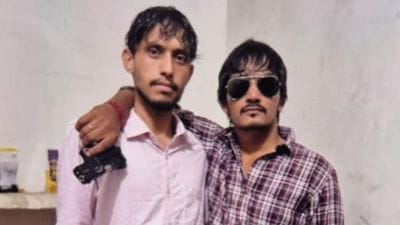70 pc of swine flu deaths in Ktaka,Maharashtra
Even as the US has declared swine flu a national emergency,the latest figures released by the Union Health Ministry show that the scenario...
Even as the US has declared swine flu a national emergency,the latest figures released by the Union Health Ministry show that the scenario in India is grim as well,with more than 450 deaths being recorded in the country so far. Up to 70 per cent of these cases occurred in the two adjoining states of Karnataka and Maharashtra.
India so far has reported more than 13,000 confirmed cases,out of which almost 99 per cent are indigenous,meaning that the victims had no recent travel history to flu-affected countries. Over 77 per cent of the reported cases are from Maharashtra,Karnataka,Delhi and Tamil Nadu.
While a long-term study by the Indian Council for Medical Research (ICMR) and National Center for Disease Control (NCDC) on the trends of the virus is underway,experts say preliminary results show that H1N1 mostly affected the economically productive age group. A senior Health Ministry official said that up to 40 per cent of the infected population was between 20-45 years of age,while children between 5-15 years comprised another 30 per cent. The remaining cases occurred in those below five and above 45 years of age.
The latest trends posted on the website of Health and Family Welfare Ministry show that of the total deaths occurred in India so far,70 per cent have been reported from Karnataka and Maharashtra. Epidemiologists at NCDC attribute this to the favourable climatic conditions in both states. It has been seen that this virus has survived well in 25-30 degrees Celsius,which is one of the reasons for these states reporting the maximum number of cases, said Dr V M Katoch,DG,ICMR.
Vaccines will not be foolproof: WHO
New Delhi: The much-awaited swine flu vaccine,currently being developed,will not provide 100 per cent protection against the disease,the World Health Organisation has said.
No vaccines,including pandemic influenza vaccines,provide 100 per cent protection against the disease. But they do greatly reduce the risk of disease, WHO said in a statement.
According to the WHO,the influenza vaccines will become effective only after 14 days of vaccination. Those infected before one to three days or shortly after immunisation can still get the disease. Moreover,the pandemic influenza vaccines are not expected to provide protection against other influenza virus. PTI
Photos


- 01
- 02
- 03
- 04
- 05




























